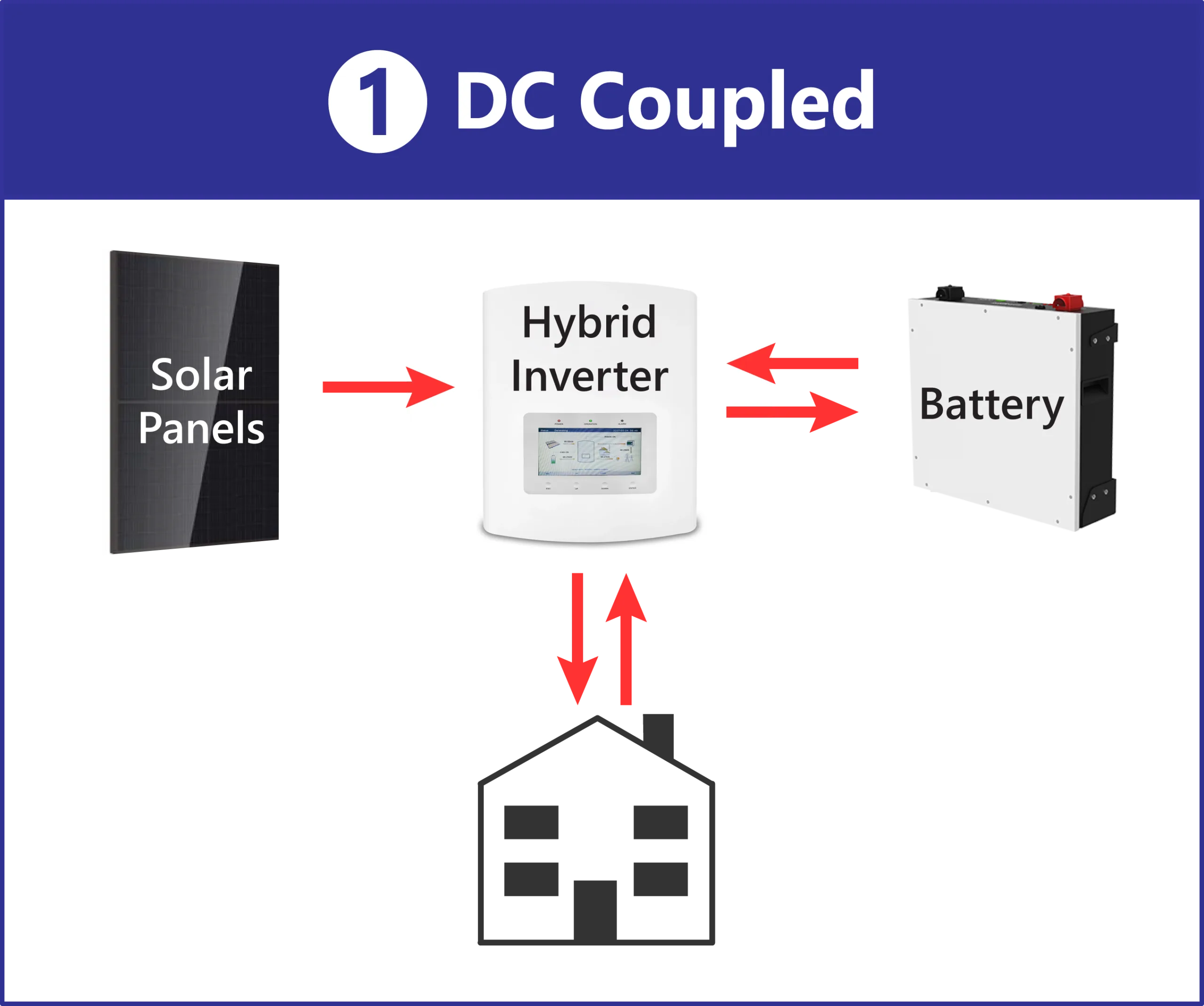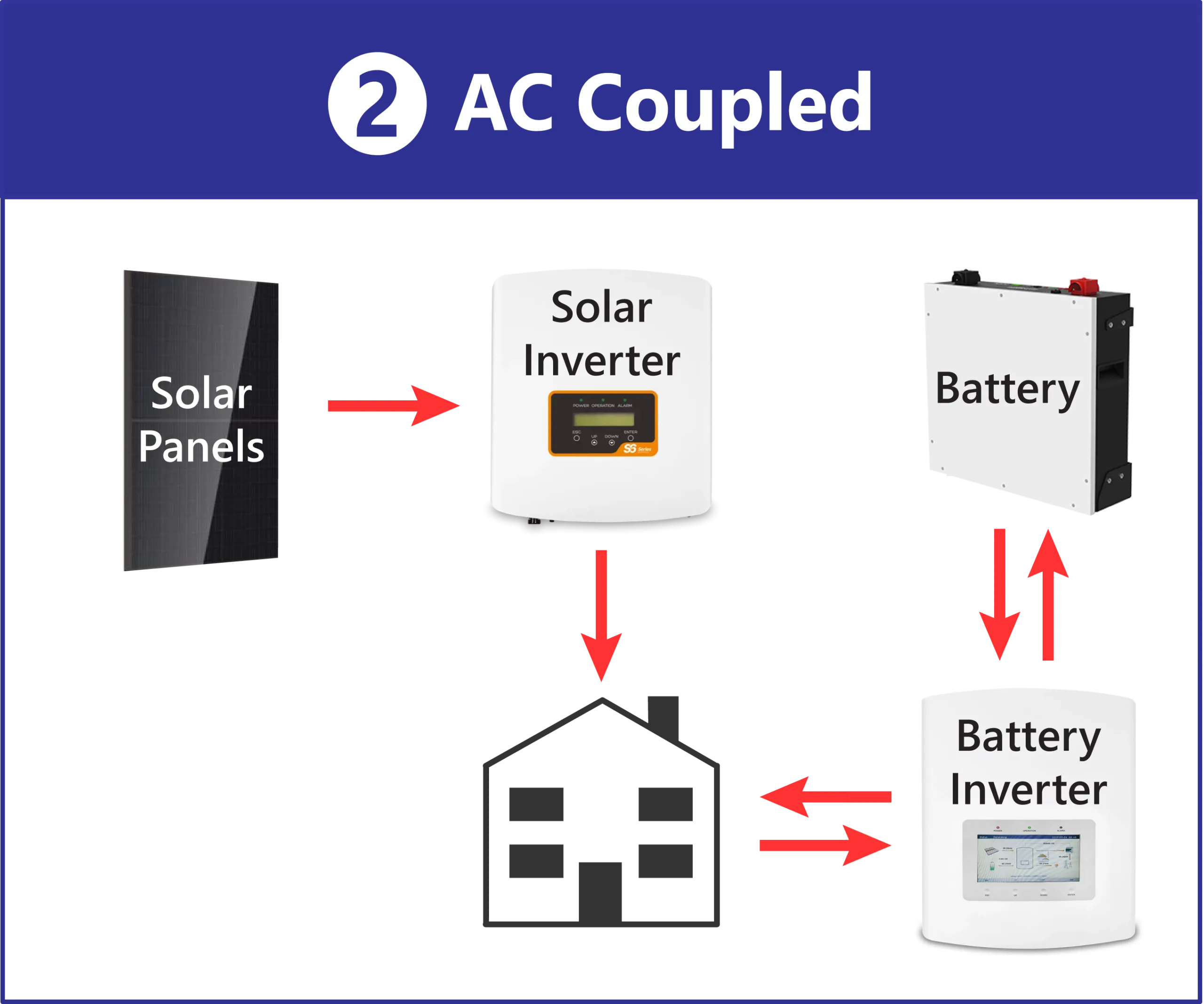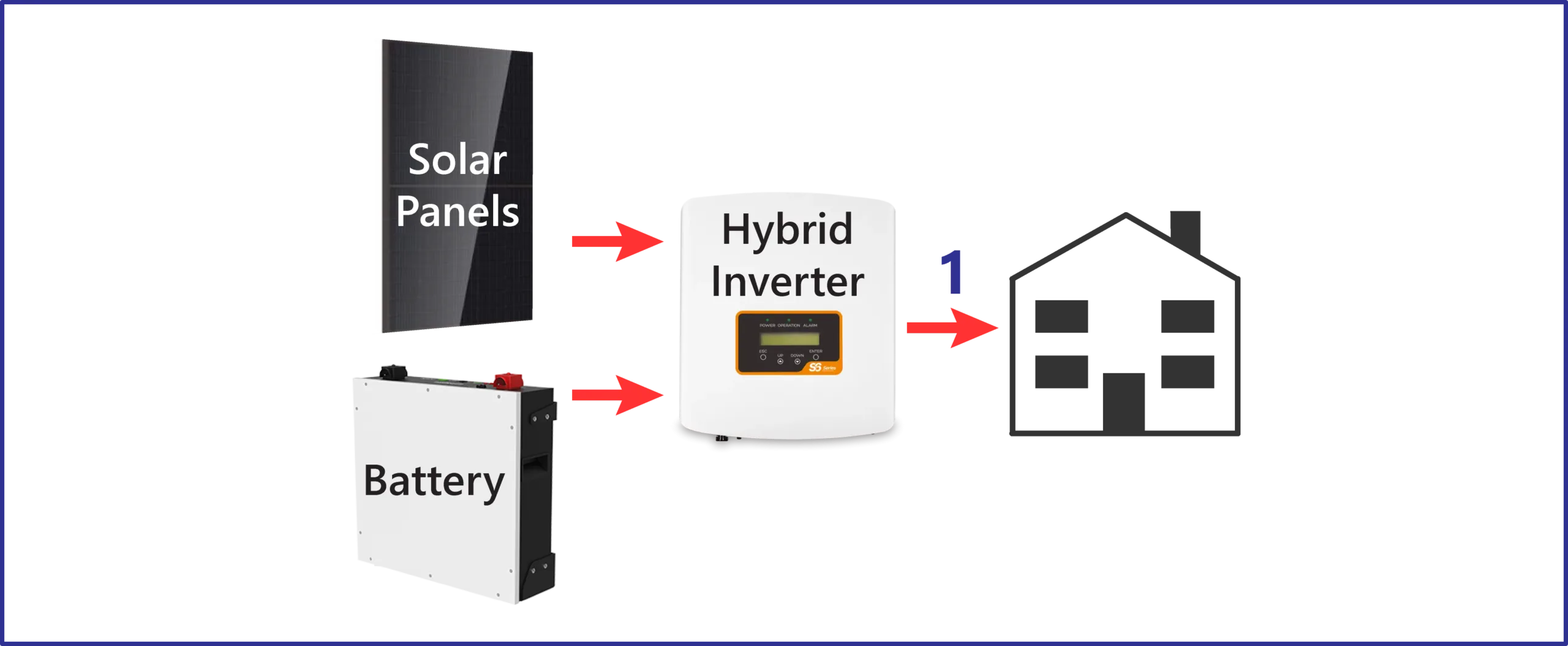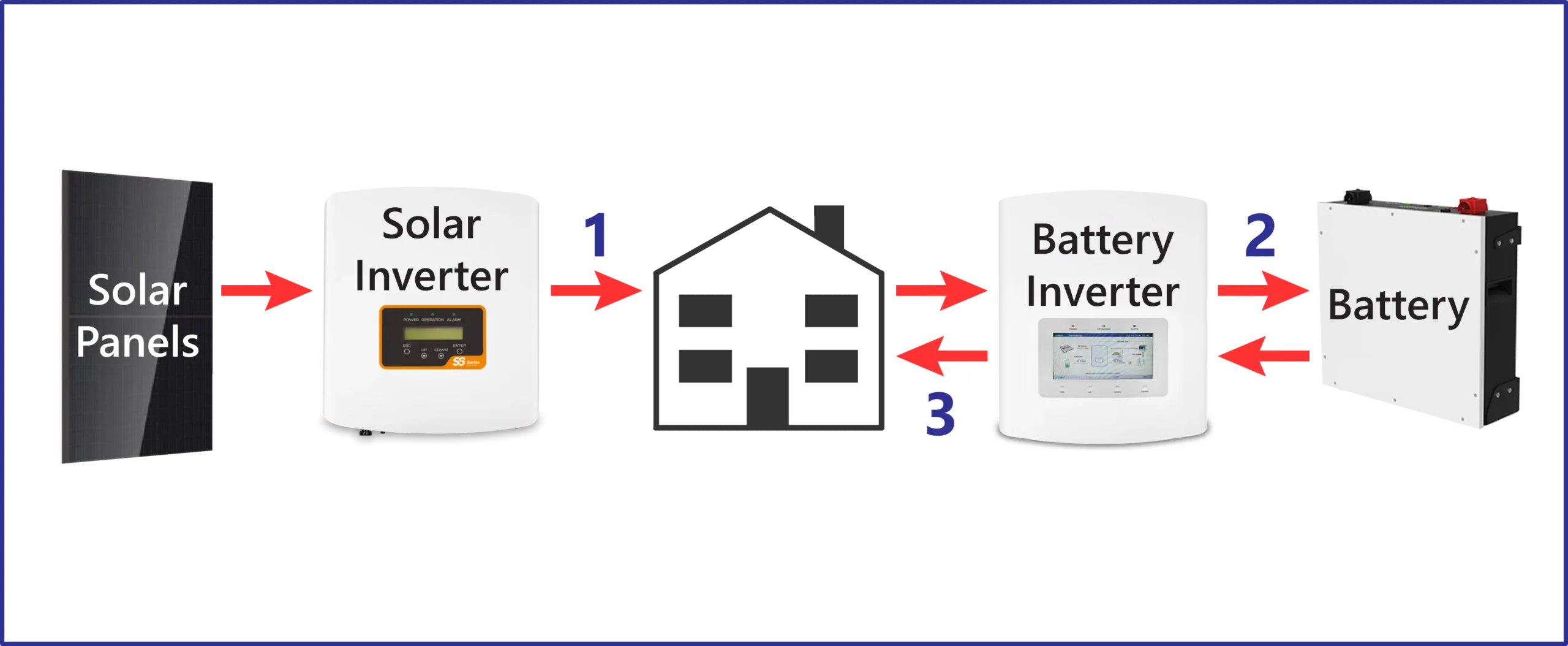DC or AC Coupled Battery?
For a quick answer, if you have a PV system already, choose an AC coupled system. Otherwise, choose a DC coupled system.
DC Coupled Battery


AC Coupled Battery


1. Efficiency
DC Coupled systems are more efficient since there are less conversions of energy between AC and DC and vice versa. 3-5% of energy is lost at each conversion.
DC Coupled Battery


AC Coupled Battery


On the AC coupled system, if the energy goes straight from the solar panels and is used in the house immediately there is only one conversion.
2. Installation Type
DC coupled systems are more aligned to new installations, while AC coupled are easier for customers with an existing solar system. If a customer has feed-in tariffs on their existing system, the system can be converted to DC coupled and the PV array extended without impacting feed-in tariffs significantly – the feed-in tariffs are pro-rated between the old and new PV array.
DC Coupled Battery

AC Coupled Battery

3. Cost
DC coupled systems are less expensive in terms of hardware and installation time. Having a single inverter is normally more user friendly, since there is typically a single app.
DC Coupled Battery

AC Coupled Battery

3. Distribution Network Operator Approval
Let’s take an example of a DC coupled inverter of 8kW. An AC coupled system has a solar inverter of 6kW and battery inverter of 5kW. For Distribution Network Operator approval, the DC coupled system would be 8kW. The AC coupled system would be 11kW (6kW + 5kW). Therefore, the DC coupled system is more likely to gain approval (and potentially faster approval through the DNO fast track process).
DC Coupled Battery

AC Coupled Battery

4. Power Output and Resilience
Power Output
If a DC coupled inverter has an output of 8kW. An AC coupled system has a solar inverter of 6kW and battery inverter of 5kW. The DC coupled power output is 8kW. The AC coupled power output is 11kW. AC coupled system can have an advantage if DNO approval is granted. However, high end systems such as SigEnergy have a 12kW inverter on a single phase, making this benefit for AC coupling less relevant.
Resilience
Having a separate solar inverter and battery inverter may be beneficial in the future. Solar inverters tend to last 8-10 years, but are easily and relatively cheaply replaced. Having a one box solution for battery, solar inverter, battery charger controller, like Tesla, may be expensive or impossible to repair after the warranty expires, compared to a very modular system. Some systems (such as Solis, Sunsync and Solax) are compatible with a wide range of batteries, which makes them more resilient and possibly more environmentally friendly.
DC Coupled Battery

AC Coupled Battery


